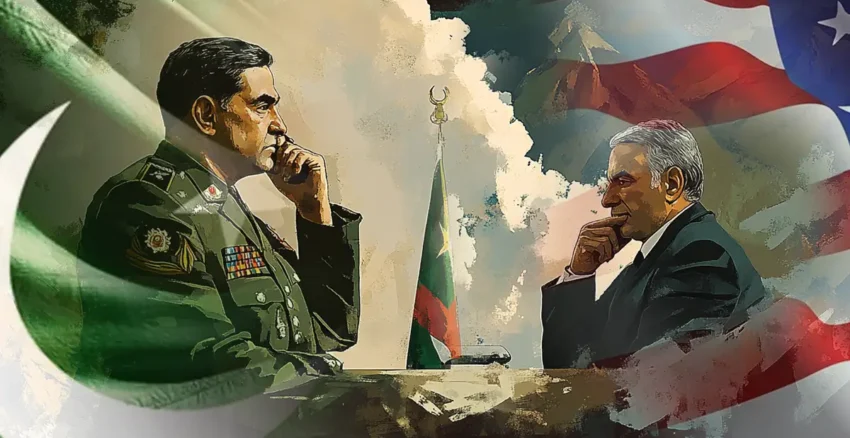US Calls Pakistan Army Chief Amid Kashmir Tension: Power Shift in Pakistan, India Watches Closely
A serious development has caught the attention of India and the global community. The United States has made a direct diplomatic call to Pakistan’s Army Chief General Asim Munir, just one day after speaking with Pakistan’s Prime Minister Shehbaz Sharif. This rare move shows that the real power in Pakistan lies with the military, not the civilian government.

What’s even more concerning is that this happened right after the deadly terrorist attack in Jammu and Kashmir, which killed 25 Indian tourists. Tensions between India and Pakistan are rising once again, and the US involvement points to a possible power shift in the region.
What Did the US Do?
According to confirmed reports from India Today, Reuters, and state.gov, the US Secretary of State, Marco Rubio, made a personal phone call to General Munir. The call happened just after the attack in Kashmir and India’s military response.
The US urged both India and Pakistan to avoid further escalation, but interestingly, the US chose to speak directly to the Army Chief, not just the Prime Minister. This sends a clear message: Pakistan’s military, especially General Asim Munir, is seen as the real decision-maker.
India’s Response: Firm But Focused
After the brutal terror attack, India launched airstrikes on terrorist camps inside Pakistan, calling it a “surgical response.” Soon after, Pakistan retaliated with drone and missile attacks. The situation turned dangerous quickly, with both nations suffering casualties.
From India’s side, the Ministry of External Affairs made it clear that India will not tolerate cross-border terrorism. Indian defence experts have also said that Pakistan’s military continues to support terrorist elements, which is why India’s focus is on strong action rather than just words.
Moreover, India’s diplomatic circles have noted that the US call to General Munir confirms what New Delhi has always believed — the Pakistan Army, not its civilian government, decides key foreign policy moves, especially regarding India.
Why This Rule Was Introduced
This power shift is important not just for India, but for the whole region. If the world, including the US, is now dealing directly with Pakistan’s Army, it could mean that future peace talks will also have to include military leadership, not just elected politicians.
From an Indian perspective, this is both a challenge and an opportunity. On one hand, it shows the truth about Pakistan’s power structure. On the other, it allows India to build stronger international support by highlighting the risks of dealing with a military-run system.
Eyes on the Border, and on the Power Center
To sum it up, the US calling General Asim Munir instead of just PM Shehbaz Sharif sends a clear message: the real boss in Pakistan wears a uniform. India, meanwhile, remains watchful, determined, and ready to protect its people and borders.
This diplomatic and military drama is unfolding fast. For Indian readers, it is important to understand not just the events, but the forces behind them.
Inflect.in — Your daily dose of stories that inform, inspire, and ignite curiosity. Follow us for more!
Inspire
Latest Post

AI in Healthcare: Smarter, Faster, and Accessible

Is Co-Sleeping Safe for Babies? Pros, Risks,

Pomegranate Benefits: Why Eating Anar or Drinking

Ma Yansong: Shaping the Future of Architecture

AI in Healthcare: Smarter, Faster, and Accessible

Is Co-Sleeping Safe for Babies? Pros, Risks,

Pomegranate Benefits: Why Eating Anar or Drinking








